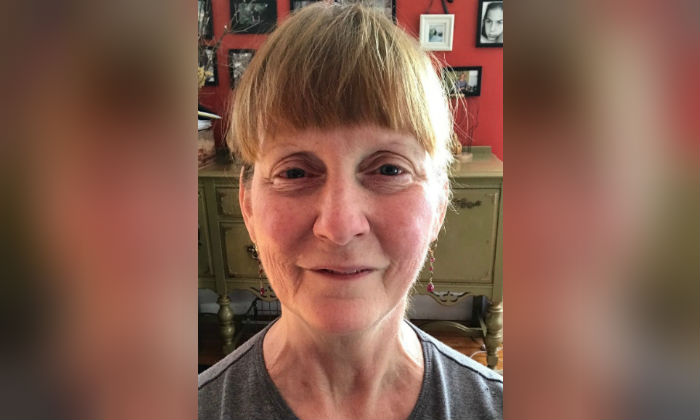A woman is hoping to get back onto the waiting list to have a heart transplant after being denied eligibility by the hospital currently treating her. Spectrum Health in Grand Rapids, Michigan reportedly told Hedda Martin, 60, that she did not have enough money to fund the necessary anti-rejection medications after the surgery and therefore was ineligible.
Martin suffers from congestive heart failure due to a complication from chemotherapy, which was used to treat her aggressive breast cancer in 2005.
On Nov. 16, Martin began taking blood pressure medication, delivered through an IV called Milrinone. This has helped her feel like she “could walk 5,000 miles,” according to a post she wrote on Facebook, the Daily Mail reported.
However, “this is only a very short term life saving drug,” said her son, Alex Britt.
Martin had been waiting for a decision from the transplant team as to whether she stays on the Milrinone or get a heart pump, called a left ventricular assistance device (LVAD), which would help her heart function better. However, the LVAD implant would mean that she would not be considered in dire need of a heart transplant, and therefore may not be added to the transplant waiting list.
The pump is expected to help Martin live up to eight more years, compared to a new heart that would help Martin live about 15 to 20 more years, according to the Detroit Free Press.
On Nov. 20, Martin received a letter from the transplant team at the hospital saying she was ineligible to be a candidate for a heart transplant “due to needing a more secure financial plan for immunosuppressive medication coverage.” The hospital urged Martin to start a fundraising campaign to raise $10,000, whereupon she would be reconsidered to be added to the waiting list.
The next day, Martin posted the letter to her Facebook page to explain that the hospital wanted to make sure that she could cover her health insurance’s yearly deductible of $4,500 by saving $10,000. The Facebook post has since been deleted.
That same day her son, Britt, opened a GoFundMe page for her and set an original goal of $10,000. The campaign surpassed the goal and has raised a total of $30,320 at the time of publication. The page currently shows a $20,000 goal.
Martin had been scheduled for the LVAD surgery on Nov. 26, but cancelled the procedure due to the $10,000 being met.
Martin wrote in a Facebook post on Nov. 26 that she has requested that her case be reviewed again, in hopes of getting back on the heart transplant waiting list, because she had met the funding goal.
“No surgery today. I requested for my case to be brought to the transplant board again tomorrow. Wish me luck. I have my $10,000 (funding) request fulfilled,” she wrote, according to Detroit Free Press.
There has been no updates to the board’s response as of the time of writing.
A general statement related to Martin’s case is posted on Spectrum’s website, which was updated on Nov. 27. It reads, in part:
“Spectrum Health cares deeply about every person and provides each of them with the highest quality of care possible.
“There are a limited number of organs available and the decision to donate an organ is often a profoundly personal decision by the donor and/or the family. We take seriously the gift of organ donation, and are fortunate to live in a community where people are willing to make this generous gift.
“It is important for patients to understand the long-term commitment they are making when accepting an organ donation. The ability to pay for post-transplant care and life-long immunosuppression medications is essential to increase the likelihood of a successful transplant and longevity of the transplant recipient.
“We help patients understand the long-term health implications of a transplant along with their total financial commitment, such as post-transplant medication expenses paid to pharmacies of their choice.”
Watch Next:
People Are Being Killed for Organs in China’s Hospitals
Before the year 2000, organ transplantation in China was a relatively niche medical treatment.


